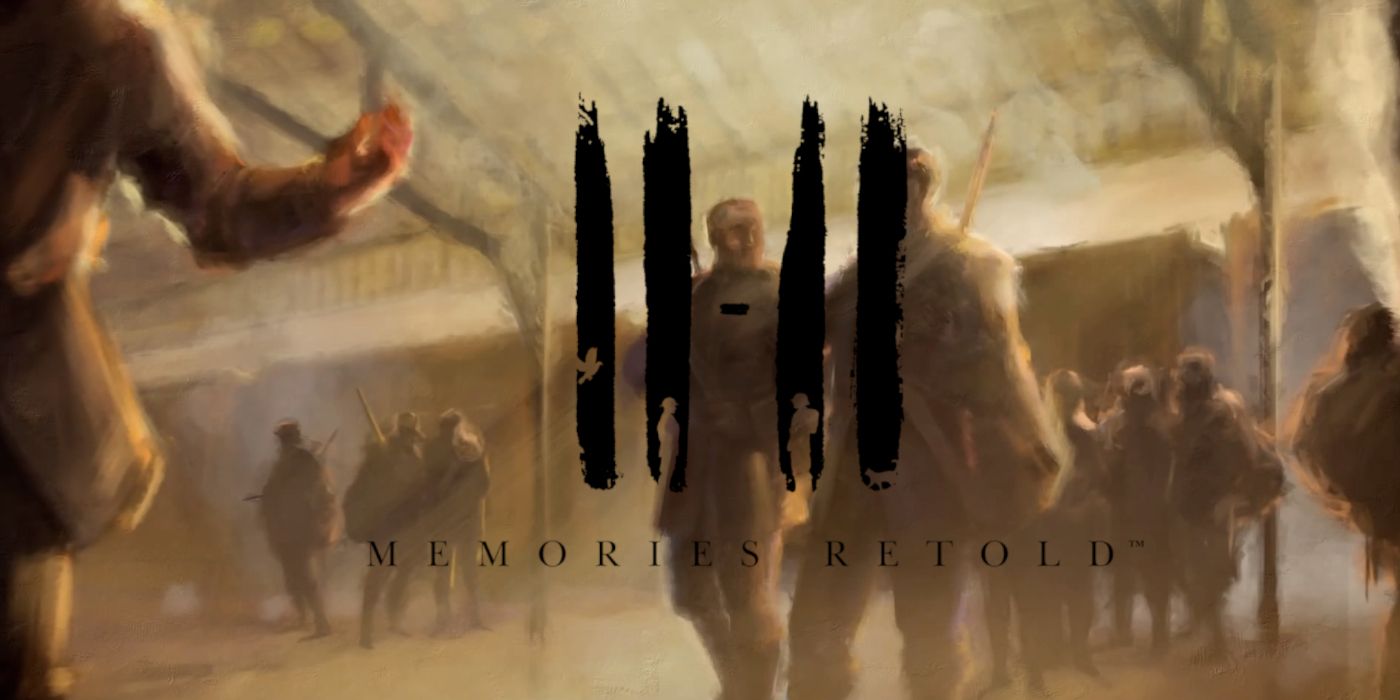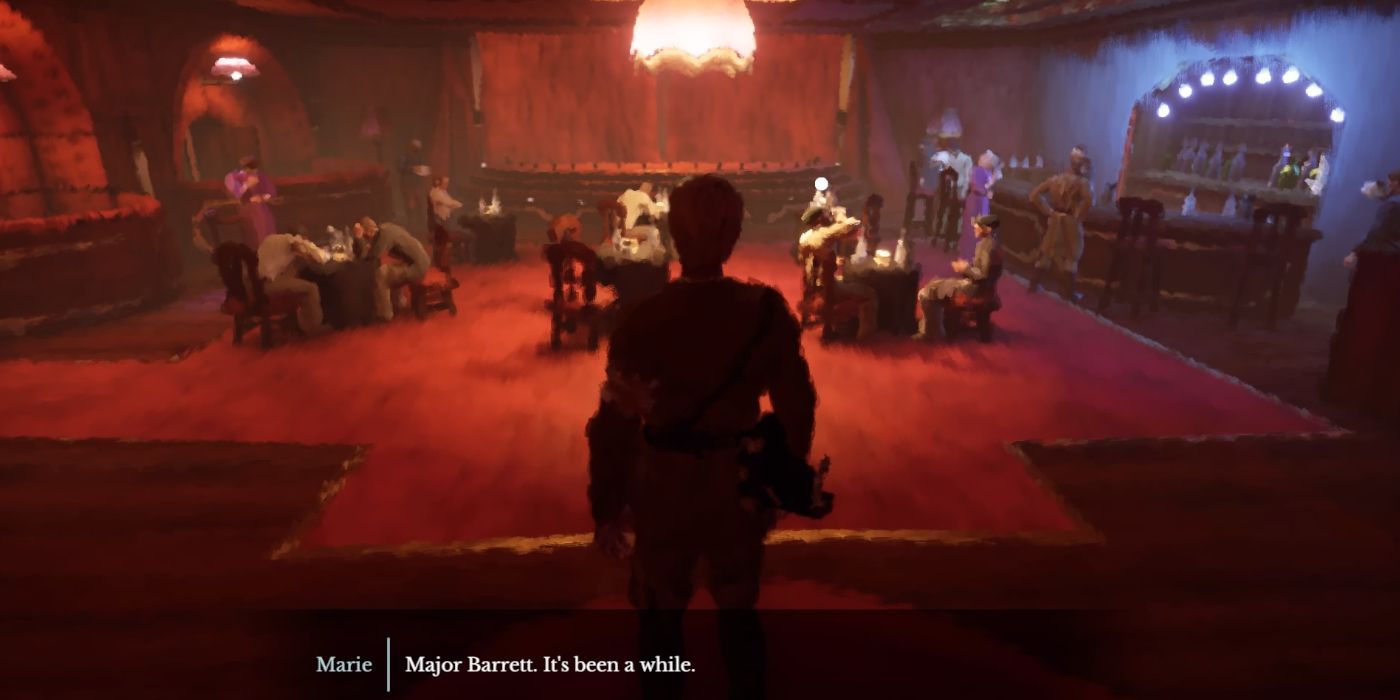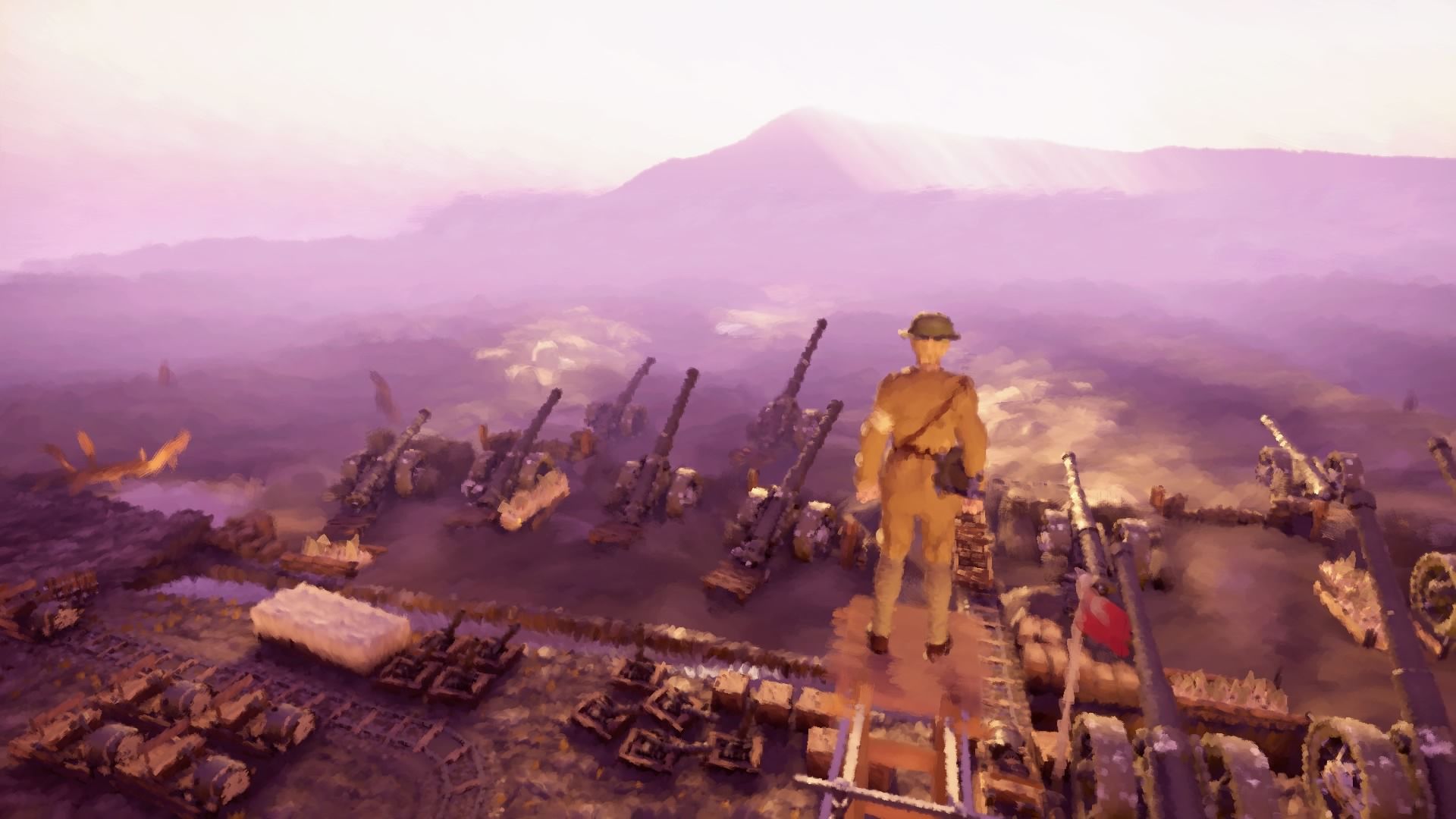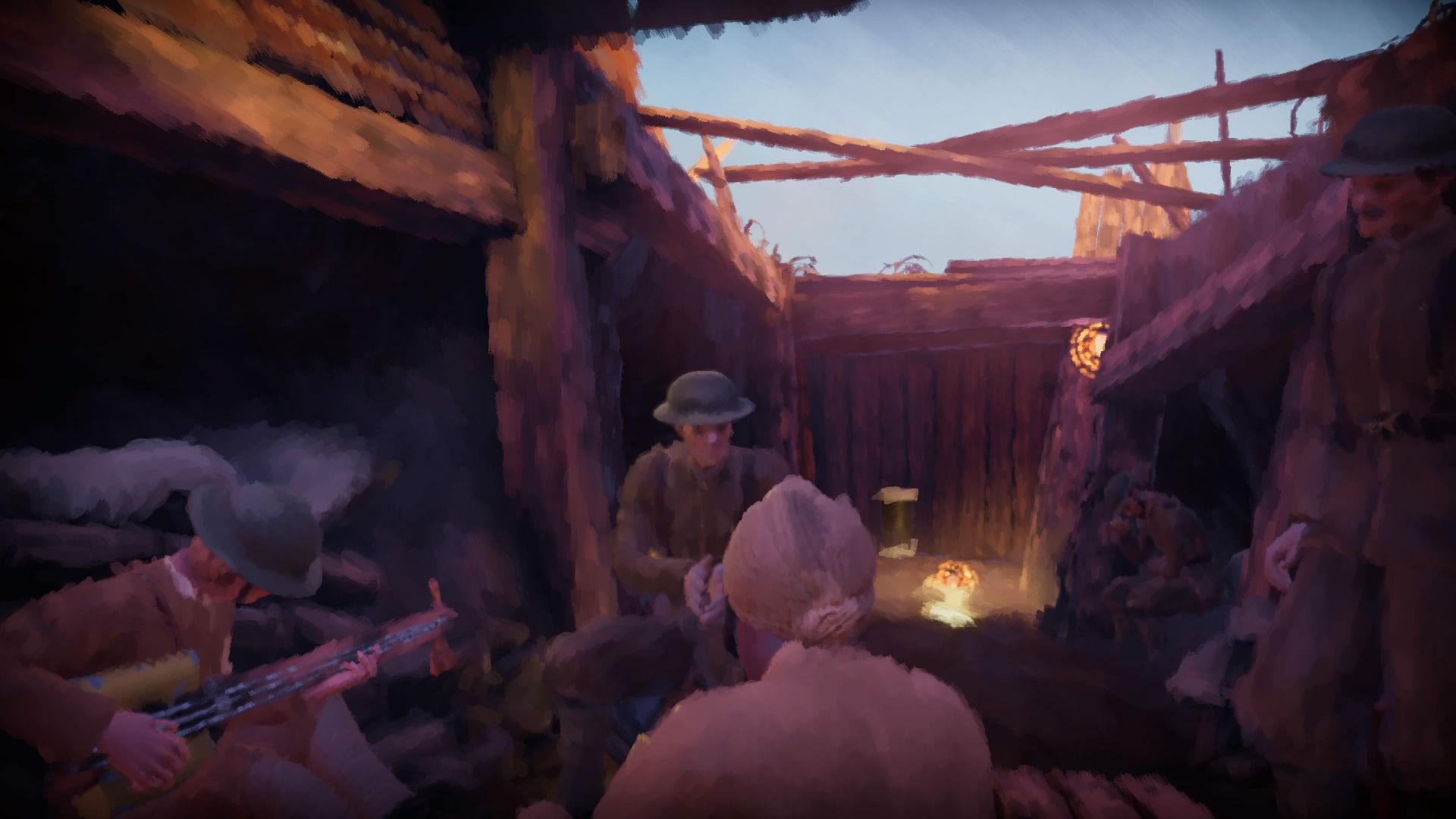
Many story-driven games seem to hang in the balance between player-involvement and cinematic experience, maintaining a kind of requisite distance to deliver a tale. 11-11: Memories Retold brings a deeply ambitious concept to this sensibility, delivering an intimate sense of humanity but a somewhat unrewarding approach to game mechanics, creating an experience that is hard-fought and won through sheer sincerity of vision and narrative sophistication. It’s an unheralded combination of the talents of Aardman Studios (best known for the Wallace & Grommit claymation classics, or this year's Early Man) and developer DigixArt revisiting the setting of World War I after 2014’s Valiant Hearts.
Harry Lambert and Kurt Wagner are two individuals compelled into The Great War on opposite sides, neither of which muster easy comparison to conventional portrayals of soldiers. Harry is a young photographer by trade and passion, while Kurt is a mechanic and technician, one of dozens of employees in a German zeppelin factory. They’re most similar in their approach to the war — purposes borne out of love, romantic and familial, respectively — but are otherwise completely different in age and background, and they meet by pure coincidence. From this point onward, though, their given paths continuously snake together over time, with the player shifting control of each character, ricocheting the story across the conflict’s border.
Related: Transpose Review - Mindbending Puzzles in VR
With a vocal performance by Elijah Wood, Harry is slightly wet behind the ears when he enlists, captivated by the menacing charm and bombast of General Barrett, a customer at the photography studio he works at. Kurt’s entrance to the war differs completely, as a father desperate to find his enlisted son and seeing no other way to ensure his safety than to don a uniform himself. The two performances are passionate, thoughtfully directed and delivered, though Sebastian Koch as Kurt outshines his more recognizable co-star, injecting believable voice-cracking pathos into the straightforward script.

The earliest hour or so of 11-11: Memories Retold unfortunately fails at making a positive first impression. That criticism is in partial consideration of the idiosyncratic art style, a unique blend of Impressionist brushstrokes slathered onto 3D models and environments, hearkening to the work of Monet and Degas but presented in constantly animated motion. For broad views and vistas, wide angles of forests and pastures, or standout settings like the blood-red poppy fields at The Battle of Vomy Ridge, the style is no less than breathtaking. However, in simplistic environments, like some early-game trenches and underground tunnels, the effect is indistinct at best, sometimes even outright ugly, and it frequently compromises a player's ability to distinguish specific objects and goals. This means that the most brilliant stages of the plot and the game’s interest in showing you its most impressive visual application are firmly gated until approximately 1/4 of the way through...but they're well worth the wait.
A similar sense of patience might be needed for much of 11-11: Memories Retold’s interactive portions throughout. While it’s true that adventure games have rarely been heralded for the pleasure of their mechanical gameplay, many of the specific scenes and moments in this one are frustrating and ungainly. An objectives system is in place to ensure that players are aware of their limited and immediate goals, but that’s where any guidance ends; it’s not uncommon to be given a new task bereft of any information about where to even find it. A character yells for the player to “come over here” in a wintry POW camp but, lacking a mini-map or a way to distinguish most NPCs from one another, you’ll just wander to and fro until you find the right character to speak to and progress the story. Interactive hotspots are always marked by a discreet white circle, but these only emerge in close proximity, and are hard to make out in the frenetic mass of brushstrokes.
Furthermore, once you do nail down these hotspots, there’s rarely a rewarding activity to partake in. You might press a button, hear an NPC bark, fuss with a simplistic minigame, or just push a crate several feet to proceed. At its worst, these moments feel unfit to the alternating intimacy and grandeur of the story itself, but they're not where the game’s meaningful value lies. Harry and Kurt become complex and absorbing characters, adeptly yoking players into their decisions and confusions, the drastic purpose they each bring to bear on the big picture around them. There are truly well-earned moments that will make certain players weep, and not by doggedly pursuing a predictable melodramatic gutpunch. To say anything further risks spoiling them, but the twists that inevitably raise are rarely obvious, and the basic conflict of two nationally-opposed "non-soldiers" intuiting their own mustered heroism evolves with poignant grace.

While the art style can waver unevenly in practice, it’s hard to imagine anyone having a single negative thing to say about the music. Quite simply, 11-11: Memories Retold possesses one of the finest original soundtracks of any video game released in years, performed and composed by Olivier Deriviere & The Philharmonia Orchestra and recorded at the legendary Abbey Road studios. Drawing from composers like Debussy and Ravel, the music is artistically linked to the historical era and even the visual style of the game, and will compel many players to seek out the album for purchase once the game is complete.
A complete century has passed since the World War I armistice, which is a momentous occasion in and of itself, and effectively fuels the essential concepts of the game. An attention to the importance of historical conflicts and their relevant echoes into the modern era connects to the War Child DLC, a fairly brief and charity-driven supplement to the game that frames The Great War against the globally-relevant crisis of war-affected children. It’s a reference point that prompts no active effect on the game experience, with the DLC mostly just throwing in a few additional collectible items and several profound live-action documentary shorts. Still, War Child is an NGO well-deserving of charitable attention, and its mere inclusion adds a context of immediacy to 11-11: Memories Retold's themes.
Those DLC collectibles mix into the rest of the recoverable ephemera in the game, squirreled away in far corners of the mostly-small explorable environments. While these collectibles deliver excellent texture to the historical era being presented, they never fail to create dissonance in the minute-to-minute gameplay. A character may be yelling at Harry to hurry along in the wake of a threat, but the player choosing to busy themselves looking for hidden notes in overlooked corners effectively shatters the (mostly harmless) illusion of threat. In a lesser story, this dissonance would risk subverting the tone completely, but this narrative perseveres. During latter portions of the game, players will probably find themselves caring less and less about these collectibles as they’re drawn further into the story, but they'll be available for pickup in future replays.

Why replay the game come story's end? 11-11: Memories Retold is actually filled with numerous path-diverting choices of alternating scope and significance, all of them feeding into a decisive, heart-stopping endgame that can vary quite drastically. Oftentimes, these choices take the form of QTEs, which run the gamut from trivially meaningless to shocking, and they can surprise players within a given instance or cutscene. Additionally, there’s a photography gameplay element linked to Harry’s character, reminiscent of Beyond Good & Evil, which also affects how certain sections play out.
Longtime fans of Telltale Games' oeuvre will readily take to 11-11: Memories Retold, as many of the abovementioned criticisms could equally be thrown at Game of Thrones or The Walking Dead. History buffs will likely appreciate the attention to detail apparent in most of the game as well, excusing things like the spotty autosave checkpointing system or the goofy look of the main character’s faces in closeup. Still, even for those less experienced with adventure games, 11-11: Memories Retold ultimately succeeds in its unique approach to the setting, best-in-class production values, and affecting, memorably beautiful interactive story.
More: Fallout 76 Review - A Risky and Rewarding Post-Apocalyptic Camping Trip
11-11: Memories Retold is available now on PC, PS4, and Xbox One $29.99. Screen Rant was provided a digital PS4 code for this review.
from ScreenRant - Feed https://ift.tt/2rcuWBb


0 Comments